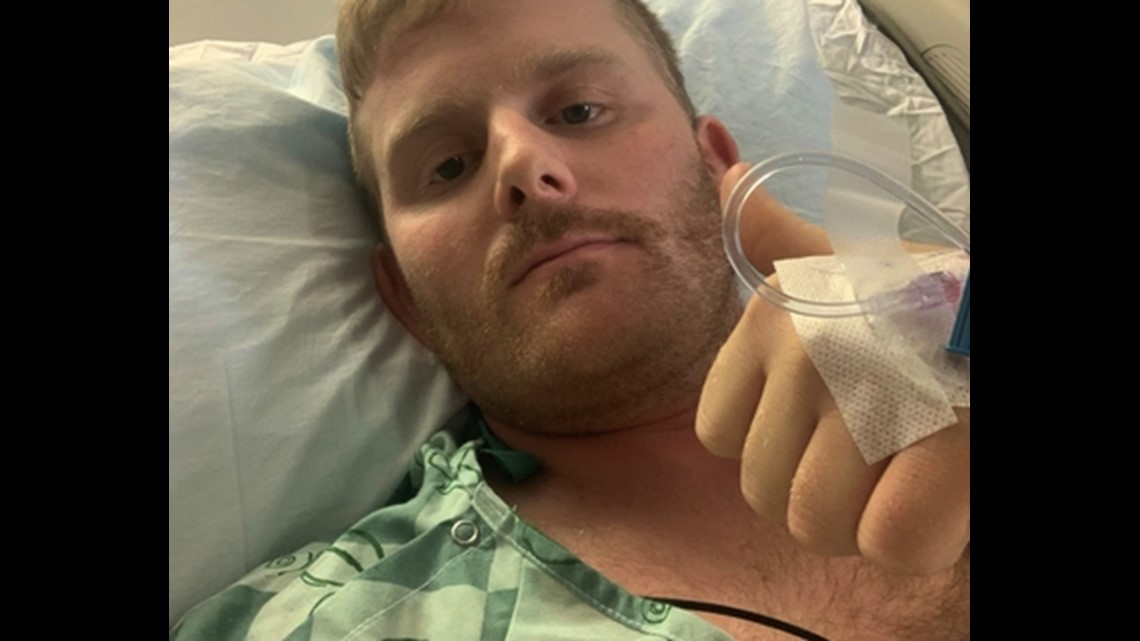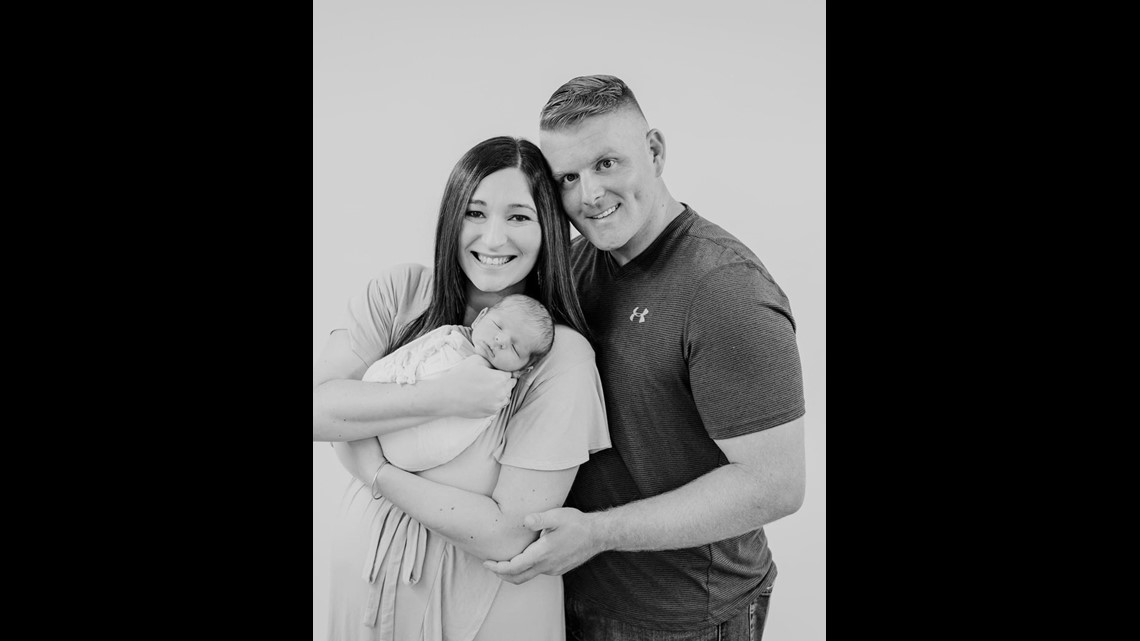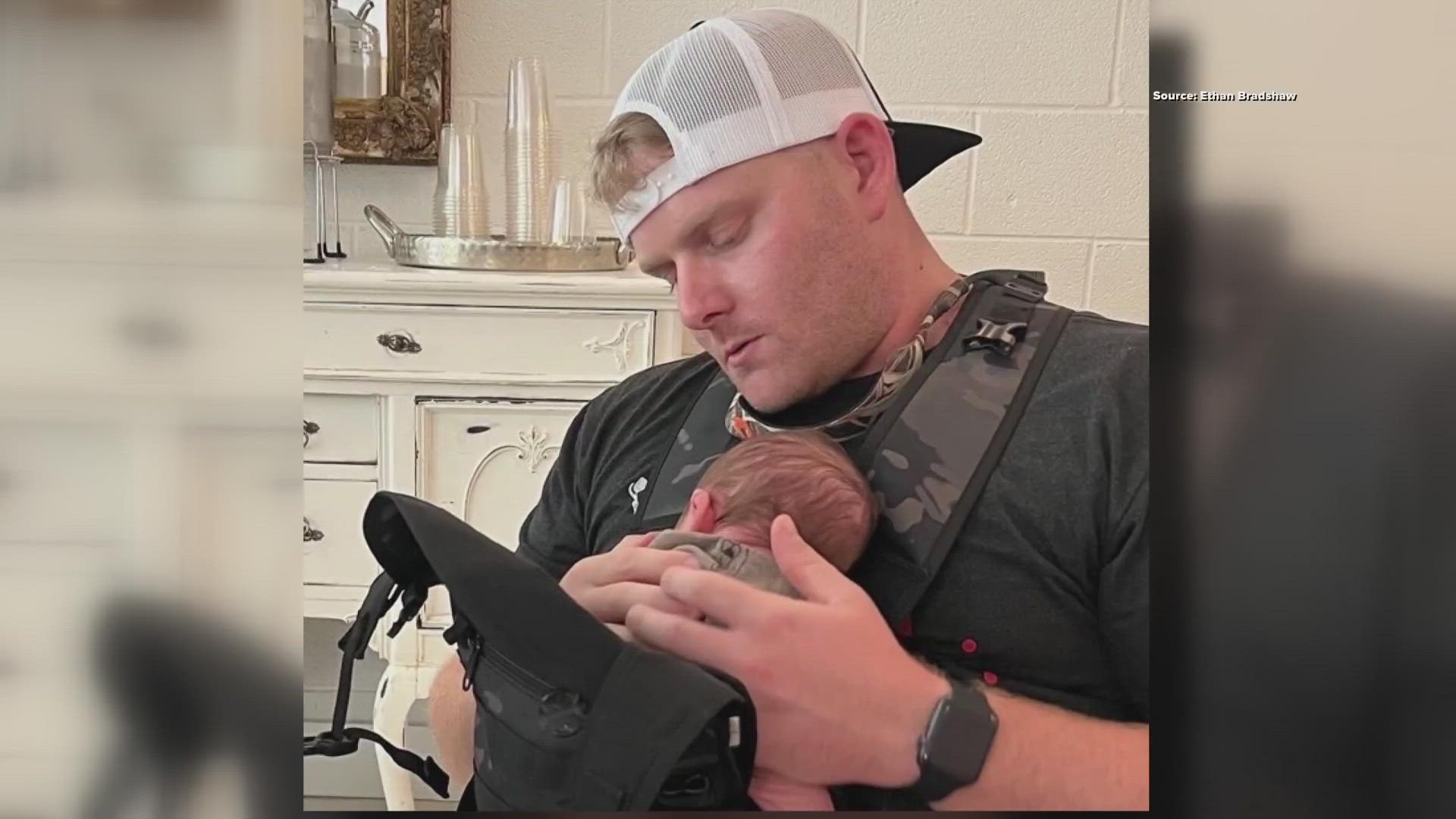FORSYTH COUNTY, N.C. — While it's often considered a health concern for older patients, surprising new research found an uptick in heart attacks for younger patients between 18 and 55 years old.
North Carolina State Trooper Ethan Bradshaw loves to be active. Whether that's playing with his seven-month-old son, or teaching a martial arts class, he's relatively on the move.
"I enjoy anything. Just kind of being outside kind of getting my hands on stuff,” Bradshaw said. “I enjoy hunting, hiking, and working out."
Young and healthy, Bradshaw said he almost never saw a doctor. That is until the chest pains started during an early morning gym session in February of 2022, just 20 days after his 30th birthday.
“The chest pains got worse,” Bradshaw said. “I started feeling nauseous, numbness in my jaw, left arm soreness. I ended up calling another buddy state trooper of mine. He is actually a medic. I called him and told him my symptoms and he is like man you’re having a heart attack and I'm like man there's no way."
Bradshaw drove himself to the hospital where medics performed roughly 40 minutes of CPR and seven shocks with a defibrillator. Tests revealed a 100% blockage in the left main artery down the front of Bradshaw’s heart.


His cardiologist, Dr. Samuel Turner with Novant Health, said this type of heart attack is nicknamed the "widow-maker” because people don't usually survive this type of blockage.
“When we think about heart attacks, the most common age is that people have heart attacks in their 60s and 70s for both men and women,” Dr. Turner said. “However, if you're less than 50 years of age you can still have a heart attack and about 6-7% of the population less than age 50 will have a coronary heart event."
Classic signs of a heart attack include chest pain, shortness of breath, nausea, and fatigue. Dr. Turner said the best way to prevent a coronary heart event is through healthy lifestyle changes.
“The decisions you make today affect your health in the future,” Dr. Turner said. “It's really important for you to see your primary care doctor at least once a year so you can see what your blood pressure cholesterol and blood sugar levels are."


After weeks of physical therapy, Bradshaw is back at work and enjoying life with his wife and newborn son.
“Listen to your body, know the signs not only for yourself but for your loved ones,” Bradshaw said. “Don't be scared to go to the hospital and just get checked out. Your family would much rather have to go visit you in the ER, and pay for the tests that have to be done instead of having to plan a funeral."
In addition to yearly visits with a primary care doctor, Dr. Turner recommends 30 minutes of exercise four to five days per week and following a Mediterranean diet.

